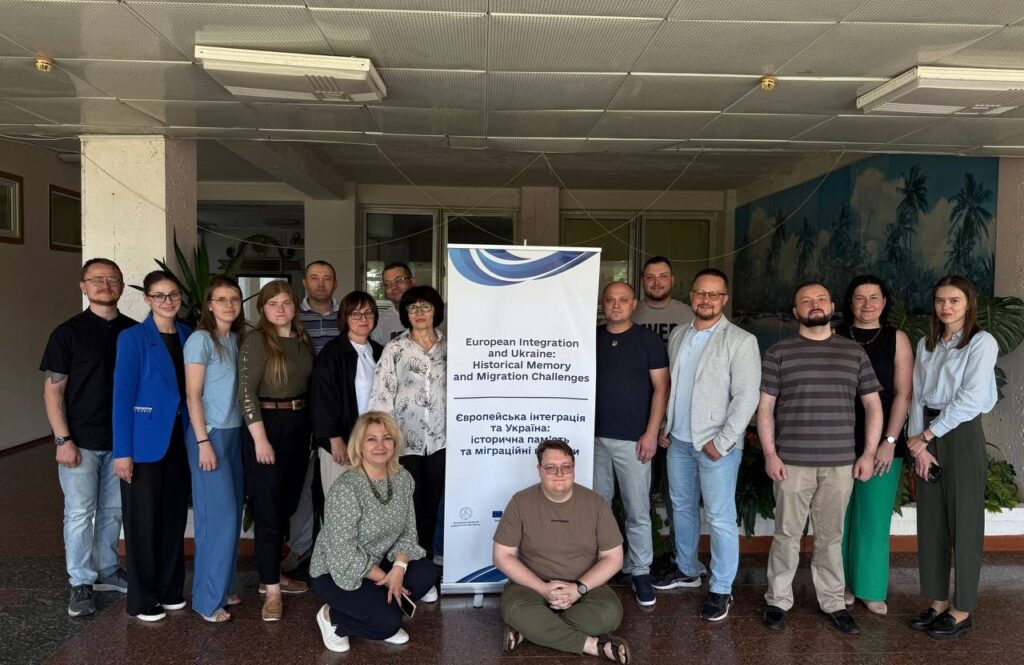Summer School “European Memory Policies in the Ukrainian and Regional Context” within the framework of the Erasmus+ Jean Monnet project (30.06-04.07.2025, online/offline)
Within the framework of the Erasmus+ Jean Monnet Module “European Integration and Ukraine: Historical Memory and Migration Challenges”, the summer school “European Memory Policy in the Ukrainian and Regional Context” was held at the Zhytomyr Ivan Franko State University during the week of June 30-July 4, 2025. The event was held in a mixed form, with a significant predominance of offline format. The event was organized by the project team, with the support of the Rectorate of the Zhytomyr Ivan Franko State University. The school was attended by teachers from Zhytomyr lyceums, students and graduate students. As a result of the summer school, 21 participants received certificates. The school participants had the opportunity to listen to lectures and work in groups at workshops by Oleksandra KOZOROH, a national trainer in history and social studies teaching methods at the European Association of History Teachers EUROCLIO, and OSCE Project Coordinator in Ukraine; Victoria VDOVICHENKO – is a PhD in History, Co-Director of the Future of Ukraine Program, Centre for Geopolitics, University of Cambridge; Andrii RUKKAS is a PhD in History, Associate Professor at Taras Shevchenko National University of Kyiv; Victoria VENHERSKA, project manager, head of the Department of History of Ukraine; Olha BILOBROVETS, professor at the Department of History of Ukraine; and Serhiy STELNYKOVYCH, professor at the Department of History of Ukraine.
The school participants learned about EuroClio’s experience and practices in teaching history and shaping memory policy, as well as innovative strategies for teaching history to shape memory policy (in the Ukrainian and European context). The peculiarities of Italy’s memory policy and the activities of Ukrainian ambassadors in promoting knowledge about Ukraine, its culture and role in modern foreign policy processes in Europe were also in the focus of the study. An important component of the school was an acquaintance with the traumatic and other places of memory in Zhytomyr and its surroundings, a visit to Kyiv, and working through the complex topics of the Holocaust during a workshop at Babyn Yar and the World War II Museum. Working in groups on mini-projects related to the school’s theme, as well as learning methods and tools for organizing classes at school and university, in the field of non-formal education, will be useful for the further practical activities of the school participants.
Details about the event and speakers’ presentations are available here: Presentation on the website:
https://www.erasmus-project.zu.edu.ua/заходи
This release was prepared using materials of Zhytomyr Ivan Franko State University.

